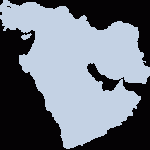Saturday
Mar202010
Latest Iran Video and Transcript: Obama's Nowruz Message (20 March)
 Saturday, March 20, 2010 at 7:12
Saturday, March 20, 2010 at 7:12 Today, I want to extend my best wishes to all who are celebrating Nowruz in the United States and around the world. On this New Year’s celebration, friends and family have a unique opportunity to reflect on the year gone by; to celebrate their time together; and to share in their hopes for the future.
One year ago, I chose this occasion to speak directly to the people and leaders of the Islamic Republic of Iran, and to offer a new chapter of engagement on the basis of mutual interests and mutual respect. I did so with no illusions. For three decades, the United States and Iran have been alienated from one another. Iran’s leaders have sought their own legitimacy through hostility to America. And we continue to have serious differences on many issues.
I said, last year, that the choice for a better future was in the hands of Iran’s leaders. That remains true today. Together with the international community, the United States acknowledges your right to peaceful nuclear energy – we insist only that you adhere to the same responsibilities that apply to other nations. We are familiar with your grievances from the past – we have our own grievances as well, but we are prepared to move forward. We know what you’re against; now tell us what you’re for.
For reasons known only to them, the leaders of Iran have shown themselves unable to answer that question. You have refused good faith proposals from the international community. They have turned their backs on a pathway that would bring more opportunity to all Iranians, and allow a great civilization to take its rightful place in the community of nations. Faced with an extended hand, Iran’s leaders have shown only a clenched fist.
Last June, the world watched with admiration, as Iranians sought to exercise their universal right to be heard. But tragically, the aspirations of the Iranian people were also met with a clenched fist, as people marching silently were beaten with batons; political prisoners were rounded up and abused; absurd and false accusations were leveled against the United States and the West; and people everywhere were horrified by the video of a young woman killed in the street.
The United States does not meddle in Iran’s internal affairs. Our commitment – our responsibility – is to stand up for those rights that should be universal to all human beings. That includes the right to speak freely, to assemble without fear; the right to the equal administration of justice, and to express your views without facing retribution against you or your families.
I want the Iranian people to know what my country stands for. The United States believes in the dignity of every human being, and an international order that bends the arc of history in the direction of justice – a future where Iranians can exercise their rights, to participate fully in the global economy, and enrich the world through educational and cultural exchanges beyond Iran’s borders. That is the future that we seek. That is what America is for.
That is why, even as we continue to have differences with the Iranian government, we will sustain our commitment to a more hopeful future for the Iranian people. For instance, by increasing opportunities for educational exchanges so that Iranian students can come to our colleges and universities and to our efforts to ensure that Iranians can have access to the software and Internet technology that will enable them to communicate with each other, and with the world without fear of censorship.
Finally, let me be clear: we are working with the international community to hold the Iranian government accountable because they refuse to live up to their international obligations. But our offer of comprehensive diplomatic contacts and dialogue stands. Indeed, over the course of the last year, it is the Iranian government that has chosen to isolate itself, and to choose a self-defeating focus on the past over a commitment to build a better future.
Last year, I quoted the words of the poet Saadi, who said: "The children of Adam are limbs to each other, having been created of one essence.” I still believe that – I believe it with every fiber of my being. And even as we have differences, the Iranian government continues to have the choice to pursue a better future, and to meet its international responsibilities, while respecting the dignity and fundamental human rights of its own people.
Thank you. And Aid-e-Shoma Mobarak.
tagged  Barack Obama,
Barack Obama,  Iran,
Iran,  Iran Elections 2009,
Iran Elections 2009,  Nowruz,
Nowruz,  Saadi in
Saadi in  Middle East & Iran
Middle East & Iran
 Barack Obama,
Barack Obama,  Iran,
Iran,  Iran Elections 2009,
Iran Elections 2009,  Nowruz,
Nowruz,  Saadi in
Saadi in  Middle East & Iran
Middle East & Iran 



